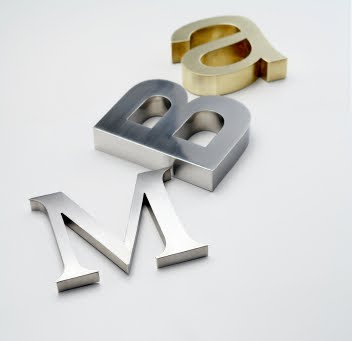During my participation in Startup Weekend I have noticed that the knowledge I soaked in my recent MBA studies has helped me to develop better presentation skills and some sort of business intuition. So here is my take on why MBA wasn’t a waste of time and money.
Presentation Skills
Having the experience of making multiple public presentations during my MBA studies, turned out to be quite useful. Most of the people in the conference clearly didn’t have the presentation skills needed to make an effective case. Some couldn’t speak at all in front of the audience; some couldn’t time their presentation and ended up spending all their time on powerpoint slides, without leaving any time to show the demo of the product itself; some were unconvincing in their answers in the Q&A part, possibly because they just didn’t think ahead which questions they might be asked.
My presentations weren’t brilliant, but they were clearly on the right track. I had a notion how things should be presented, took the effort to prepare and rehearse, remembered the importance of logical flow of ideas and had control over time.
Interesting thing about preparation is that it actually allows you to be more flexible and dynamic and change things on the fly. When I prepared for my first two minute presentation, I wanted to start with a teaser quiz, asking the audience to identify two online retailers from print-screens of their homepages. But as my turn was coming, I realized that the printed pages were too small for most of the audience, and the exercise would be pointless. So I substituted it with a short personal story of a frustrating experience buying a TV online.
Business Intuition
It feels to me that I have developed some intuition of which ideas make business sense and which don’t. And if that’s so, it is thanks to the many hours poured into trying to figure out business models and distribution channels in courses such as Global Strategic Management, I took during MBA. More than that, I think that now I have a proper respect for the business side of technological entrepreneurship. That is not to say that entrepreneur should be obsessed about making money from his endeavor – I think it’s essential to be enthusiastic about the project, regardless of the prospect of making money from it. But understanding market’s entry points, the structure of the competition, the value proposition of the offering – all those MBA slogans I once shrugged off – is essential not only for getting funding, but more importantly, for having the right focus and the right user scenario in mind, when developing the product.
I felt that many people – developers and people from other fields alike, lacked this intuition and respect. People focused mainly on the technological side, on the coolness factor, and gave the business concerns only a fleeting glimpse. I remember a team that has developed a demo based on the idea of using the keyboard and the mouse as a guitar. Not a bad idea by itself, but when the girl that presented it was asked what was the market for this product, and how was it different from Guitar Hero guitar device, she replied that “some people’s fingers were too big for Guitar Hero‘s guitar, and they will find using the keyboard more convenient”. If your best idea of your target audience is “large-fingered guys”, then you are in trouble.
So while the lessons and value of MBA may not be immediately visible (especially if it didn’t have immediate effect on your career), you may discover one day that that it was worthwhile, after all.



Hi Mike,
Now that you have switched to a new site, I’ve received all of your old posts. I have to say these are very interesting, thought provoking blog posts. keep up the good work.
Now, regarding this particular post, I’m thinking about my next academic step after finishing my M.Sc. in computer science, which will hopefully be soon. What other benefits did you personally get from studding for an MBA?
Thanx for the kind words 🙂
I would say that MBA got me see the bigger picture. While I still appreciate the craft of software development, I don’t see it anymore as a goal in itself, but rather as a part of a bigger thing: product, organization, strategy. So if previously I would think in terms of product architecture and design, MBA got me thinking in terms of strategy (how this product fits with company’s vision) and market (which customer’s the product targets, and how it meets their needs).
If as engineer you ask yourself questions like “does it scale?”, “is it testable?”, MBA encourages you to develop skills that would help you to answer questions like “what are we trying to do here? are we selling just a piece of software, or bringing some intangible value to the customer, like security, or peace of mind ?”.
If you plan on making a transition in some point from purely engineering jobs, to those in which you deal with customers, marketing people, etc, you might benefit from MBA, both, as a resume and confidence/knowledge booster.
Hi Mike,
Now that you have switched to a new site, I’ve received all of your old posts. I have to say these are very interesting, thought provoking blog posts. keep up the good work.
Now, regarding this particular post, I’m thinking about my next academic step after finishing my M.Sc. in computer science, which will hopefully be soon. What other benefits did you personally get from studding for an MBA?
Thanx for the kind words 🙂
I would say that MBA got me see the bigger picture. While I still appreciate the craft of software development, I don’t see it anymore as a goal in itself, but rather as a part of a bigger thing: product, organization, strategy. So if previously I would think in terms of product architecture and design, MBA got me thinking in terms of strategy (how this product fits with company’s vision) and market (which customer’s the product targets, and how it meets their needs).
If as engineer you ask yourself questions like “does it scale?”, “is it testable?”, MBA encourages you to develop skills that would help you to answer questions like “what are we trying to do here? are we selling just a piece of software, or bringing some intangible value to the customer, like security, or peace of mind ?”.
If you plan on making a transition in some point from purely engineering jobs, to those in which you deal with customers, marketing people, etc, you might benefit from MBA, both, as a resume and confidence/knowledge booster.